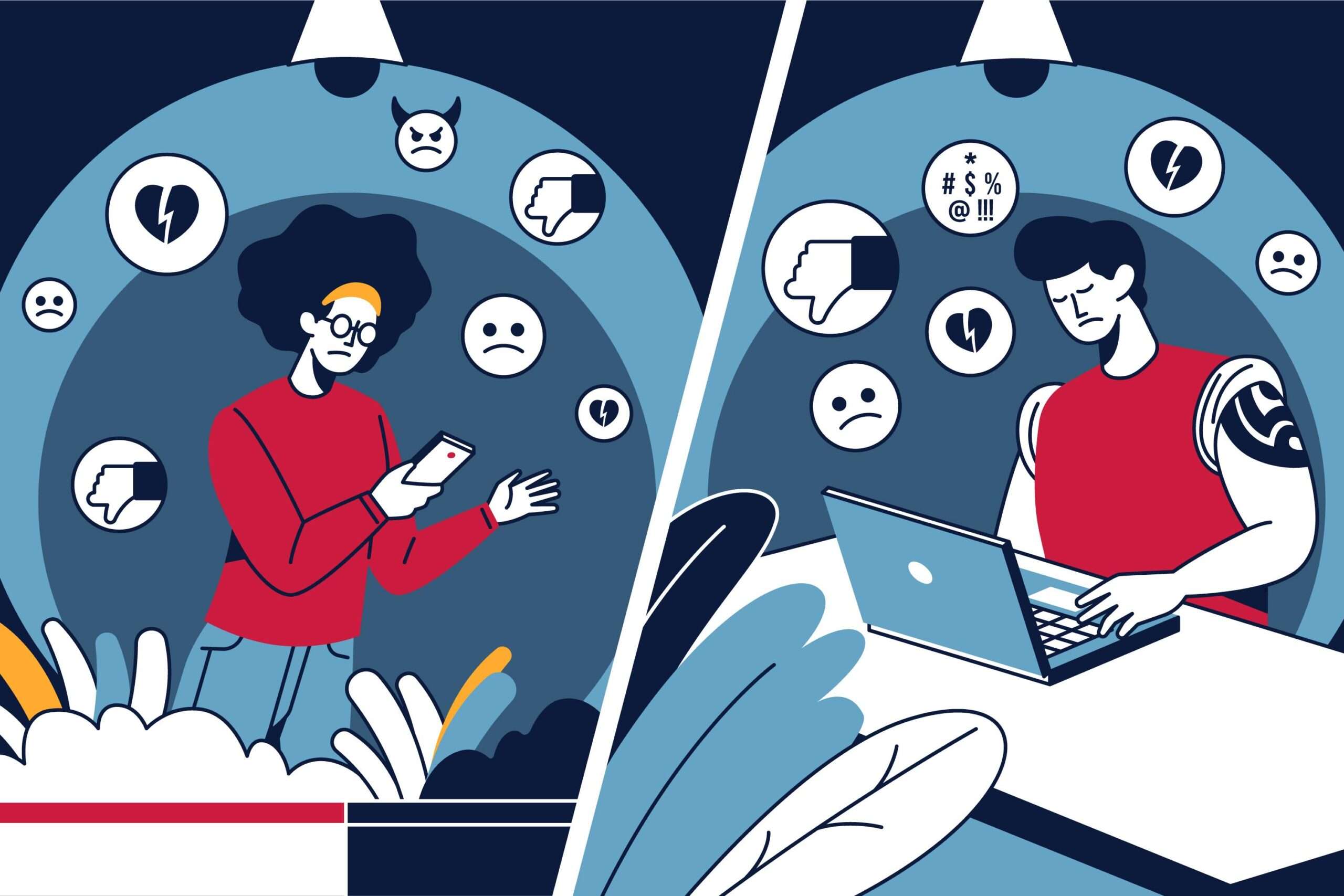Being a parent of a teenager can be both exciting and challenging. Sometimes, it’s hard to know if your teen is just going through normal teen mood swings vs. depression. You might wonder if you’re overreacting or if seeking professional help is too extreme. You might also feel unsure because your teen’s behavior doesn’t match all the signs you read about.
Table of Contents
ToggleIt’s normal to have these questions and worries. This blog is here to help you understand the difference between typical teen mood swings vs. depression. We’ll show you what to look for and when it’s time to get help. Your teen’s mental health is important, and being informed can make a big difference. By reading this, you’ll learn how to support your teen, whether they are just having a tough day or struggling with something deeper. Let’s dive in and explore how you can make sure your teen gets the care and support they need.
If you are concerned about your child’s mental health, contact our top psychologist today.

Recognizing Signs of Teen Mood Swings vs. Depression
As a parent, it’s crucial to recognize the teen mood swings vs. depression. According to research, depression is more than just feeling sad for a few days. It’s a long-lasting feeling of sadness and loss of interest that affects their daily life. As per research, Here are some signs that may indicate your teenager is experiencing depression:
- Persistent Sadness
- Loss of Interest
- Changes in Sleep Patterns
- Changes in Appetite or Weight
- Difficulty Concentrating
- Physical Symptoms
- Social Withdrawal
- Irritability or Anger
- Poor Academic Performance
- Self-Harm or Suicidal Thoughts
Recognizing these signs early can make a big difference in your teenager’s life. If you notice several of these signs persisting for more than a couple of weeks, it’s important to take them seriously.
Comparing Teen Mood Swings vs. Depression
Understanding the difference between teen mood swings vs. depression in teens can help you support your teenager more effectively. Here’s a comparison:
Duration:
- Mood Swings: Research says that Teenagers can experience mood swings that are usually short-lived, lasting a few hours to a couple of days. These mood changes are often triggered by specific events or situations, like an argument with a friend or a stressful exam.
- Depression: Depression lasts much longer, often for weeks, months, or even years. The feelings of sadness, hopelessness, or irritability are more constant and do not go away easily.
Intensity:
- Mood Swings: While mood swings can be intense, they tend to fluctuate. Your teen might be very happy one moment and upset the next. However, these changes are usually not extreme enough to interfere significantly with their daily life.
- Depression: Depression affects a teen’s overall outlook on life. The sadness or irritability is more severe and pervasive, impacting their ability to function normally at school, at home, or with friends.
Triggers:
- Mood Swings: Specific events often trigger mood swings. For example, your teen might feel upset after a disagreement with a friend or feel anxious before an important test.
- Depression: While stressful events can contribute to depression, it doesn’t always need a clear trigger. Your teen might feel persistently down without a specific reason.
Emotional Range:
- Mood Swings: Teens with mood swings experience a wide range of emotions. They might be happy, sad, angry, or excited within a short period. These emotions are usually temporary and change frequently.
- Depression: Depression typically involves a more limited range of emotions, often centered around sadness, emptiness, or irritability. There is a persistent feeling of gloom that overshadows other emotions.
Behaviour Changes:
- Mood Swings: Behavioral changes during mood swings are usually temporary. Your teen might act out, become more withdrawn, or display unusual behavior for a short period, but they tend to return to their usual selves fairly quickly.
- Depression: Behavioral changes in depression are more lasting and noticeable. Your teen might withdraw from activities they used to enjoy, isolate themselves from friends and family, and show a lack of interest in life over an extended period.
Impact on Daily Life:
- Mood Swings: While mood swings can be disruptive, they generally do not have a long-term impact on your teen’s daily life. They can still go to school, participate in activities, and maintain relationships, even if they have occasional bad days.
- Depression: Depression significantly interferes with your teen’s daily life. They might struggle to keep up with school, avoid social interactions, and lose interest in activities they once enjoyed. It can affect their academic performance, relationships, and overall well-being.
Physical Symptoms:
- Mood Swings: Physical symptoms are usually not a major component of mood swings. If present, they are often related to temporary stress or anxiety.
- Depression: Depression can cause various physical symptoms, such as fatigue, changes in appetite and weight, and unexplained aches and pains. These symptoms are more persistent and can significantly affect your teen’s physical health.
Seeking Pleasure:
- Mood Swings: Despite experiencing mood swings, teenagers often seek out activities that make them happy or help them cope with stress.
- Depression: Teenagers with depression may stop seeking pleasure altogether. They might not find joy in activities they used to love and may not make any effort to engage in fun or rewarding activities.
Understanding these differences between teen mood swings vs. depression will help you better gauge your teen’s mental state. By identifying the unique triggers and intensity of these behaviors, you can respond more effectively.
Identifying Warning Signs of Teen Mood Swings vs. Depression
Recognizing the difference between teen mood swings vs. depression is key. Here are some warning signs that your teen may need professional help:
1. Behavioral Changes:
- Withdrawal from Activities: If your teen stops participating in activities they used to enjoy, it could be a red flag. This includes hobbies, sports, or even social gatherings with friends.
- Isolation: A teen who spends most of their time alone and avoids family and friends might be showing signs of depression.
- Changes in Routine: Look for changes in their daily routine, such as neglecting personal hygiene, sleeping too much or too little, or eating more or less than usual.
2. Academic Performance:
- Declining Grades: A sudden drop in grades or lack of interest in schoolwork can be a sign of depression. Depression can make it hard for teenagers to concentrate, remember things, or stay motivated.
- Lack of Participation: If your teen is skipping classes, not turning in assignments, or avoiding school altogether, these behaviors can indicate underlying depression.
3. Emotional Symptoms:
- Persistent Sadness or Hopelessness: If your teen seems sad, empty, or hopeless most of the time and these feelings don’t seem to go away, it could be a sign of depression.
- Irritability or Anger: Teens might not always show sadness when they are depressed. Instead, they might be irritable, angry, or frustrated over small things.
- Excessive Worry or Fear: Constant worry or fear that seems out of proportion to the situation can also be a sign of depression.
4. Physical Symptoms:
- Changes in Sleep Patterns: Watch for significant changes in their sleep habits, such as insomnia (difficulty sleeping) or hypersomnia (sleeping too much).
- Changes in Appetite or Weight: Noticeable weight loss or gain, or changes in eating habits can be linked to depression.
- Complaints of Aches and Pains: Teens might complain about headaches, stomachaches, or other physical symptoms that don’t have a clear cause.
5. Risky or Self-Destructive Behaviour:
- Substance Abuse: Some teenagers might turn to alcohol or drugs as a way to cope with their feelings of depression.
- Self-Harm: Behaviours like cutting, burning, or other forms of self-injury are serious signs that your teen needs help immediately.
- Suicidal Thoughts or Actions: Any mention of wanting to die, talking about suicide, or making plans to end their life should be taken very seriously. Seek professional help right away if you notice these signs.
6. Social Withdrawal:
- Avoiding Friends and Family: If your teen is spending more time alone and less time with friends and family, it could be a sign of depression.
- Loss of Interest in Social Activities: Not wanting to go to parties, hang out with friends, or participate in group activities can also indicate depression.
7. Unexplained Crying:
- Frequent Tearfulness: If your teen cries easily and frequently without a clear reason, it might be a sign of underlying emotional distress.
By keeping an eye on these warning signs, you can better understand what your teenager is going through. It’s important to remember that everyone can have a bad day or a tough week, If you notice several of these warning signs, it’s crucial to evaluate whether your teen is experiencing normal teen mood swings vs. depression. Early recognition and intervention are critical. If you need professional assistance, contact our top psychologist today.

When to Seek Professional Help
If you’re unsure whether your teen is experiencing normal teen mood swings vs. depression, here are some guidelines for differentiating depression from normal teenage behavior:
- Persistent Symptoms: If your teen’s symptoms of depression, such as persistent sadness, irritability, or withdrawal, last for more than two weeks, it’s a strong indicator that professional help is needed.
- Impact on Daily Life: When depression starts to interfere significantly with your teen’s daily life, including their school performance, relationships, and personal activities, it’s time to seek help. This includes noticeable declines in grades, avoiding social interactions, or neglecting personal hygiene.
- Physical Symptoms: If your teen experiences physical symptoms like unexplained aches and pains, changes in sleep patterns, or significant weight changes that persist, it’s essential to consult a healthcare provider.
- Risky Behaviors: Engaging in risky or self-destructive behaviors, such as substance abuse, self-harm, or talking about suicide, are immediate red flags that require urgent professional intervention. Never ignore threats or signs of self-harm or suicidal thoughts.
- Isolation: If your teen isolates themselves from friends and family, avoids social activities, and spends most of their time alone, it may be a sign they need help.
- Difficulty in Communication: When your teen struggles to talk about their feelings or seems unable to express what they are going through, a professional can help them open up and find healthy ways to cope.
Steps to Take:
- Talk to Your Teen: Approach your teen with compassion and concern. Let them know you are there for them and that you want to help. Avoid being judgmental or critical, as this can make them shut down.
- Consult a Healthcare Provider: Start with your family doctor or a pediatrician. They can provide an initial assessment and refer you to a mental health specialist if needed.
- Seek a Mental Health Professional: Look for a licensed therapist, counselor, psychologist, or psychiatrist who specializes in adolescent mental health. They can offer therapy, counseling, and, if necessary, medication to help manage depression.
- Utilize School Resources: Many schools have counselors or psychologists who can provide support and resources for your teen. They can also help with academic accommodations if depression is affecting their school performance.
- Join Support Groups: Support groups for parents and teens dealing with depression can be a valuable resource. They provide a sense of community and shared experiences, helping both you and your teen feel less isolated.
Supporting Your Teenager
Supporting a teenager who is experiencing teen mood swings vs. depression requires patience, understanding, and consistent effort. Here are some ways you can help:
- Open Communication:
- Encourage Talking: Create a safe space for your teen to talk about their feelings. Listen without interrupting or offering immediate solutions. Let them know their feelings are valid and that you are there to support them.
- Ask Open-Ended Questions: Instead of yes/no questions, ask questions that encourage your teen to share more about their experiences and emotions. For example, “How have you been feeling lately?” or “What’s been on your mind?”
- Show Empathy and Understanding:
- Be Patient: Understand that dealing with depression is not easy and recovery takes time. Avoid expressing frustration or impatience.
- Validate Their Feelings: Acknowledge your teen’s emotions without dismissing them. Statements like “I can see that you’re really struggling” can help them feel understood.
- Encourage Healthy Habits:
- Regular Exercise: Physical activity can improve mood and reduce symptoms of depression. Encourage your teen to engage in activities they enjoy, such as sports, dancing, or even daily walks.
- Balanced Diet: Ensure your teen is eating a healthy, balanced diet. Proper nutrition can have a positive impact on their mood and energy levels.
- Sleep Routine: Help your teen establish a regular sleep schedule. Good sleep hygiene can improve their overall mental health.
- Limit Screen Time:
- Set Boundaries: Excessive screen time, especially on social media, can negatively impact your teen’s mental health. Set reasonable limits and encourage offline activities.
- Encourage Social Interaction:
- Foster Connections: Encourage your teen to spend time with friends and family. Positive social interactions can help improve their mood and reduce feelings of isolation.
- Support Their Interests: Help your teen pursue hobbies and interests that bring them joy and fulfillment.
- Be Involved:
- Stay Engaged: Keep track of your teen’s activities, friends, and school life. Being involved shows that you care and can help you spot any changes in behavior early.
- Participate Together: Spend quality time with your teen doing activities you both enjoy. This can strengthen your bond and provide opportunities for open communication.
- Seek Professional Help Together:
- Normalize Therapy: Help your teen understand that seeking help from a therapist or counselor is a normal and healthy step. Offer to help them find a suitable professional and attend sessions together if they are comfortable.
- Educate Yourself:
- Learn About Depression: Understanding more about depression can help you better support your teen. Read books, attend workshops, or join support groups for parents.
Remember, whether your teen is facing normal teen mood swings vs. depression, your support can make all the difference in their recovery and mental health.
Conclusion
Understanding the difference between typical teen mood swings vs. depression is crucial for supporting your child’s mental health. By recognizing persistent and severe symptoms, knowing when to seek professional help, and providing a supportive environment, you can make a significant positive impact on your teen’s well-being. Stay informed, be patient, and always approach your teen with love and empathy to help them navigate through these challenging times. If you need guidance, contact our top psychologist today for expert advice and support.

